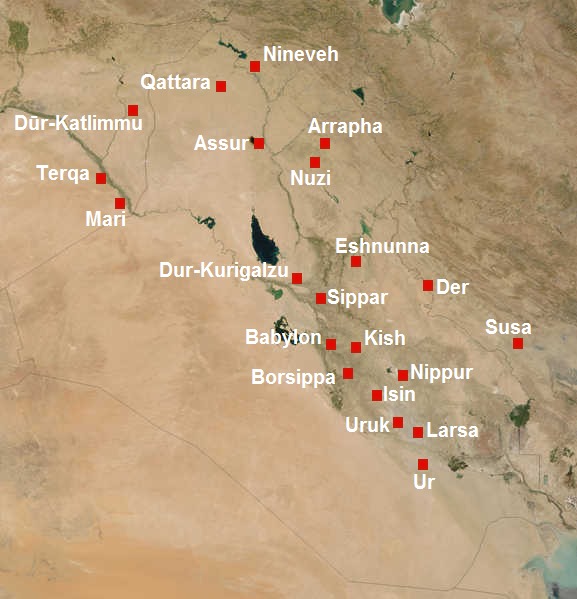
| DER (SUMER)
Mesopotamia in 2nd millennium BC Der (Sumerian: ALUDi-e-ir [citation needed], uruBAD3.ANki) was a Sumerian city-state at the site of modern Tell Aqar near al-Badra in Iraq's Wasit Governorate. It was east of the Tigris River on the border between Sumer and Elam. Its name was possibly Durum.
History
:
Rim-Sin I of Larsa reported destroying Der in his 20th year. Ammi-Ditana of Babylon also recorded destroying the city wall of Der in his 37th year, that he said had been built earlier by Damqi-ilishu of the Sealand Dynasty. In 720 BC the Assyrian king Sargon II moved against Elam, but the Assyrian host was defeated near Der by the combined army of king Humban-Nikash I of Elam and king Marduk-apla-iddina II of Babylon. Following the Persian conquest of Babylon in 539 BC, the Cyrus Cylinder mentions repatriating the people and restoring the sanctuary of the god of Der, among other cities.
Statue dedicated to the goddess Ninshubur of the city of Der by Enzi and his son Amar-kiku (2400 BCE), British Museum, BM 22470 Archaeology
:
Source :
https://en.wikipedia.org/ |

.jpg)